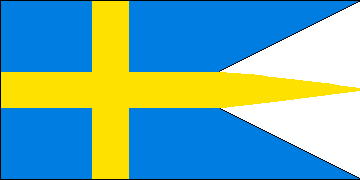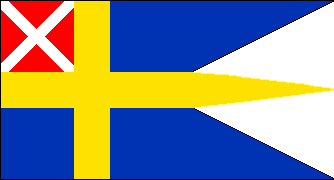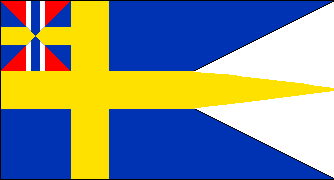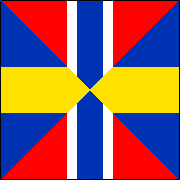KINGDOM OF SWEDEN
NAVAL ENSIGNS & JACKS • SEVENTEENTH CENTURY TO 1905
Prior to 1815, the naval ensign of Sweden was almost identical to the one used today: a blue flag with three "tongues," charged with a yellow cross. In that year, the personal union of Sweden and Norway under the Swedish crown led to the introduction of new, common flags and ensigns for both countries. Since Norway had formerly been united to Denmark, the colors of the Danish flag, red and white, were added to the Swedish flag in the form of a red canton with a white saltire cross.
Norway's desire for a flag of its own was partially satisfied in 1821, when the current Norwegian national flag was approved for limited use at sea. Finally, in 1844, the common flag of 1815 was abolished. Thereafter Sweden and Norway had their own national flags and ensigns, but with the so-called union mark in their cantons. The union mark, which combined the crosses of the Swedish and Norwegian flags, also served as both nations' naval jack.
During the period of the union with Norway, a darker shade of blue was used for Swedish flags and ensigns. When the union was dissolved in 1905, the union mark was removed from all Swedish flags and they reverted to the lighter shade of blue common before 1815.
As illustrated, corresponding commissioning pennants were introduced with each ensign.





